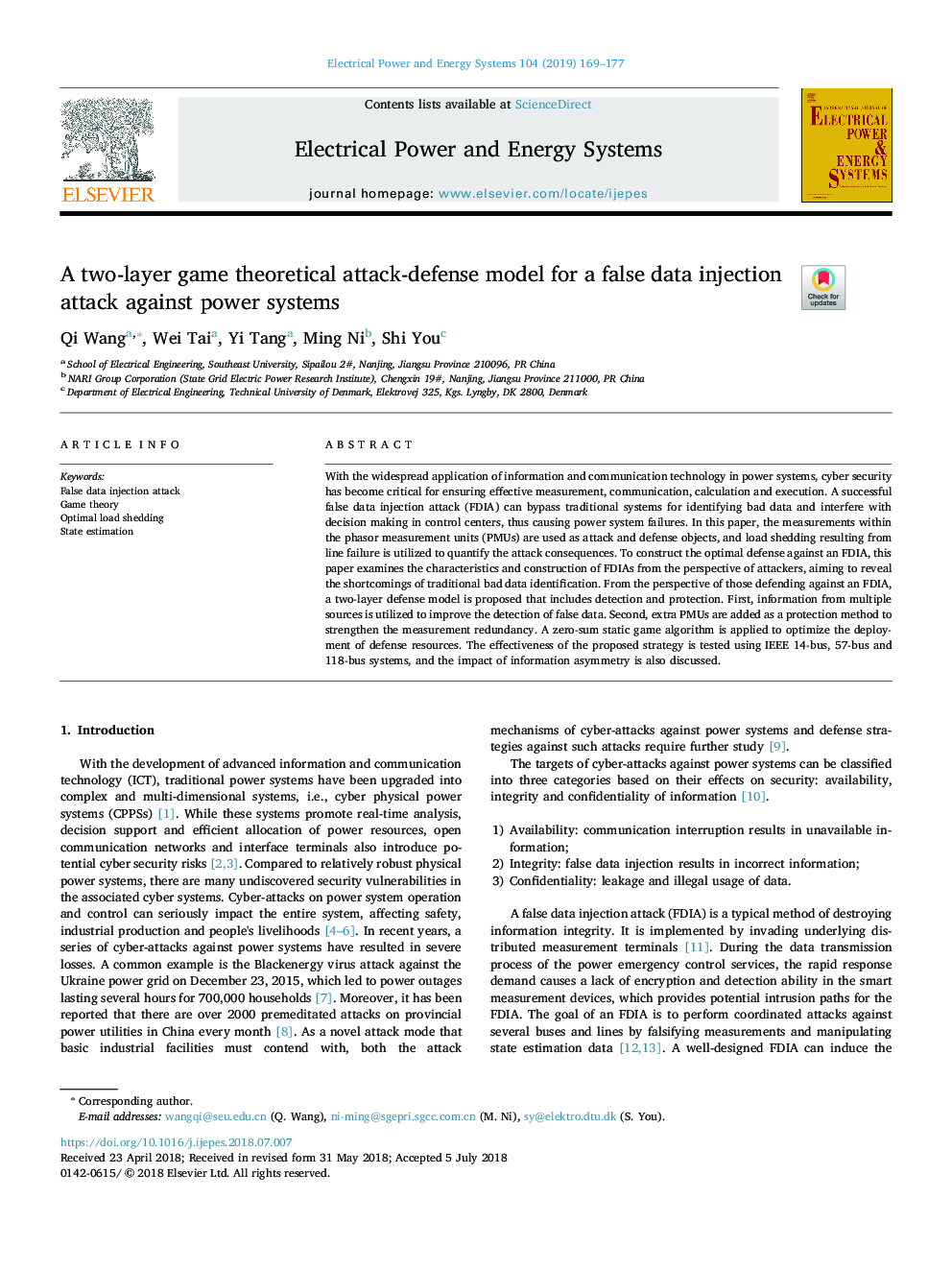| Article ID | Journal | Published Year | Pages | File Type |
|---|---|---|---|---|
| 6859044 | International Journal of Electrical Power & Energy Systems | 2019 | 9 Pages |
Abstract
With the widespread application of information and communication technology in power systems, cyber security has become critical for ensuring effective measurement, communication, calculation and execution. A successful false data injection attack (FDIA) can bypass traditional systems for identifying bad data and interfere with decision making in control centers, thus causing power system failures. In this paper, the measurements within the phasor measurement units (PMUs) are used as attack and defense objects, and load shedding resulting from line failure is utilized to quantify the attack consequences. To construct the optimal defense against an FDIA, this paper examines the characteristics and construction of FDIAs from the perspective of attackers, aiming to reveal the shortcomings of traditional bad data identification. From the perspective of those defending against an FDIA, a two-layer defense model is proposed that includes detection and protection. First, information from multiple sources is utilized to improve the detection of false data. Second, extra PMUs are added as a protection method to strengthen the measurement redundancy. A zero-sum static game algorithm is applied to optimize the deployment of defense resources. The effectiveness of the proposed strategy is tested using IEEE 14-bus, 57-bus and 118-bus systems, and the impact of information asymmetry is also discussed.
Related Topics
Physical Sciences and Engineering
Computer Science
Artificial Intelligence
Authors
Qi Wang, Wei Tai, Yi Tang, Ming Ni, Shi You,
